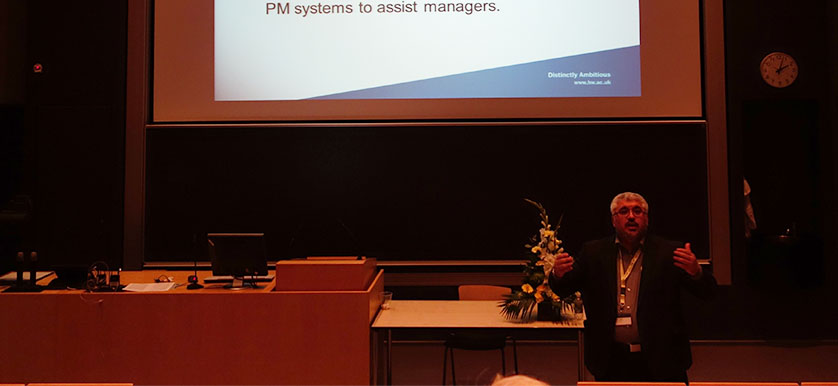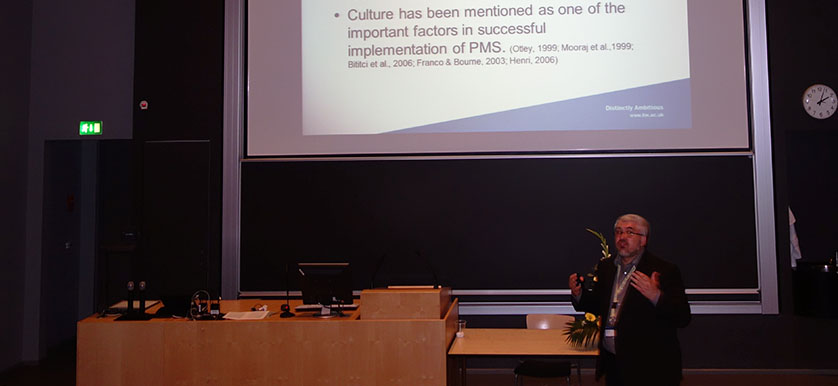Exploring the Impact of National Culture on Performance Measurement with Ihssan Jwijati and Umit Bititci, at the 2014 PMA Conference
26th of June, 2014, was the 3rd day of the 2014 PMA Conference, and it hosted a presentation authored by Ihssan Maamoun Jwijati, Operations Management Tutor and Umit Bititci, Professor of Business Performance at the Heriot-Watt University.
Their presentation brought evidence from their research paper, dubbed “Exploring the Impact of National Culture on Performance Measurement (PM)”, which aimed at investigating the cultural influences on performance management design and implementation.
To this end, they’ve conducted a qualitative study, where the Hofstede national culture framework and Chinese, Italian, Syrian and UK cultural samples were used. The research encompassed 8 semi-structured interviews, applied to top managers of small and medium sized enterprises.
What they have observed is the fact that there are identifiable patterns for the interaction between every national culture examined within the research and the respective performance management system (PMS).
The patterns identified by Ihssan Jwijati and Umit Bititci are the following:
- China: with family organizational culture, the PMSs are formal, controlled exclusively by top management and are used exhaustively for strategic management, monitoring and behavioral influencing;
- Italy: with both an incubator and family organizational cultures present they have PMSs with relatively balanced measures, designed by either middle or top management and used in strategic management, communicating, monitoring and learning behavior, with some occasional resistance in implementation;
- Syria: where PMSs are used mainly for financial reasons, with a highly protective outlook on how outputs are shared and distributed between different management levels;
- UK: with two types of organizational cultures, there is a shift in emphasis, between workforce and task, along with the same characteristics as stated above, like a reductionist approach (merely monitoring and communicating) but with limited use in learning and development.
The outline of the above scenarios, as pinned by the authors in their presentation, is the fact that ultimately, cultural aspects will have an influence on the usage of a Performance Management system, with implications to its potential of generating future development.

Tags: Organizational Culture, PMA 2014 Conference







